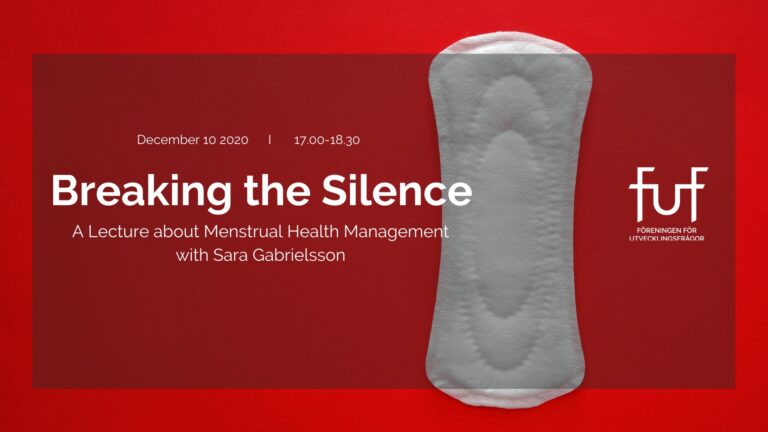Why does menstruation matter to everyone, everywhere? Why is menstruation still such a taboo across the world? Who are most vulnerable to poor menstrual health management? What aspects of development could improved MHM contribute to the most? What are the biggest barriers to scaling up menstrual health management across the world? How does MHM link to sustainability?
Background:
According to Sara Gabriellson, 300 million women and girls menstruate worldwide, on any given day. For any girl or woman in the world periods can be a struggle. In Tanzania, lack of hygiene products and potable water, sanitation facilities and waste collection systems, along with deeply rooted taboos makes the menstrual cycle even harder. Poor Menstrual Health Management has shown to impact both physical and mental health, school performance and attendance, and the environment – key factors relevant for achieving a number of the United Nations Sustainable Development Goals.
Who is our speaker?
Sara Gabrielsson is an Associate senior lecturer in Sustainability science at Lund University. Sara’s primary research focus is on Water, Sanitation and Hygiene (WASH) and sustainable development in Africa. Sara’s vision is to facilitate the interaction between academia and sanitation practitioners to enable the spread of sustainable WASH from theory to action.
When?
Thursday 2020-12-10 between 17:00 and 18:30





